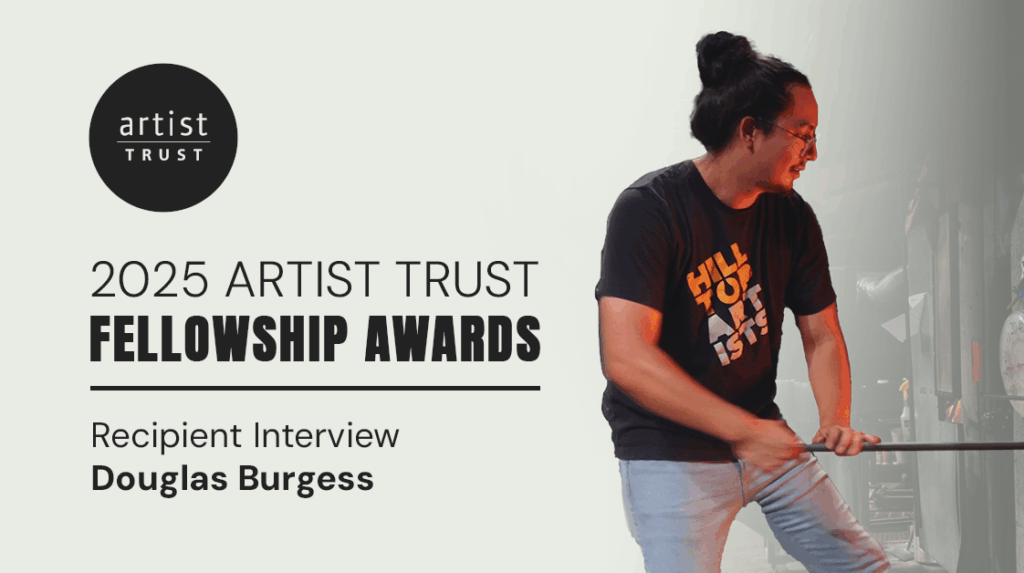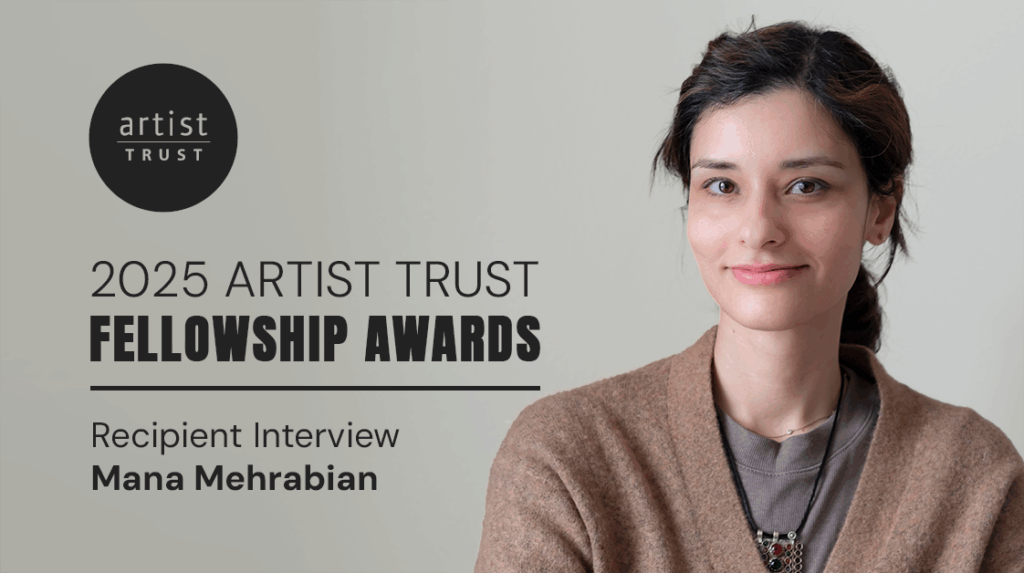Home > News & Stories > Meet the 2024 Fellows: Maya Jewell Zeller
News & Stories
Meet the 2024 Fellows: Maya Jewell Zeller
Published: November 21, 2024
Categories: Artist Interviews

About Artist Trust Fellowships
Artist Trust Fellowships are merit-based awards of $10,000 providing unrestricted support to practicing professional artists of exceptional talent and ability residing in Washington State. The first Artist Trust Fellowship Awards were selected in 1987, making it our longest-running award program. In 2024, $150,000 was awarded to 15 artists across five Washington State counties.
Our Meet the Fellows series highlights each of the award winners over the year in a series of interviews, talks, blog posts, and social media highlights. To support grants programs like the Artist Trust Fellowships, visit artisttrust.org/donate
Interview with 2024 Artist Trust Fellowship Recipient Maya Jewell Zeller
Please introduce yourself and share a little about yourself and your background.
I was born in the upstairs apartment of my parents’ small gas station on the Oregon coast, in the late 1970s. In the small handful of family photos that exist, there are chickens and cats and wood piles, and I am peering out of cardboard boxes meant for oranges. Everything is repurposed. There is an ocean, and a creek, and a blur of sand. Capitalism is losing. The summer I turned two, the gas station went completely out of business, and the building burned to the ground. The rest of my childhood, I lived in buses, trailers, garages, an occasional duplex, a rental farmhouse in a flood plain. In rural Southwest Washington, literacy arrived in the form of a traveling library van, which parked itself between the Bank of the Pacific and Okie’s Select Market, just off Route 4. I looked forward to that weekly trip to our library van with a hunger that surpassed any of my other hungers. With a lot of work (bucking hay, babysitting, cleaning dormitories, other manual labor) and the opportunity of need-based government grants, scholarships, and tax-funded-state college, I attended Western Washington University, and earned a BA in English Literature and Education. I have since taught high school, then community college, been a visiting fellow at Oxford, an editor, and community arts organizer. My most satisfying work is the time I spend with people who want to pursue possibilities via imagination and language, and I am fortunate to do that in my teaching career—both via Central Washington University’s MA and BA programs, and in Western Colorado University’s low-residency MFA, as well as in community workshops, libraries, and other venues.
The way you build scenes creates a unique freshness to your work that is relatable and still very specific to your life. Has recollecting certain memories affected how you view the world around you?
I used to play this memory imagination game with my children, that involved recalling a time before we were human, when our star matter belonged to other shapes and lives: “When I was a tree,” or “When I was a sea urchin” . . . and continuing by finishing that sentence. So, as an example, I might have said something like, “When I was a western redcedar, my roots were often thirsty. I could feel when you walked over them,” and my daughter might have said, “When I was a violin, I knew a bow by heart in my deep cave.”
The outcome, I guess, was that by imagining ourselves into one of the various past iterations of self, or in thinking of the needs of other-than-human-entities, we could both remember that we all contain a lot of versions of ourselves, and also imagine ways to make more space for the many versions of life around us. I want to keep opening out, but also in. I want to view the world as permeable and possible, for more of us than it was yesterday. Memory of my life—my lives—before this moment helps me keep doing that.
 Maya Jewell Zeller and Carrie DeBacker, Alchemy for Cells & Other Beasts, book cover, 2017.
Maya Jewell Zeller and Carrie DeBacker, Alchemy for Cells & Other Beasts, book cover, 2017. Maya Jewell Zeller and Kathryn Nuernberger, Advanced Poetry, textbook cover, 2024.
Maya Jewell Zeller and Kathryn Nuernberger, Advanced Poetry, textbook cover, 2024. Maya Jewell Zeller, Out Takes/Glove Box, book cover, designed by Angelo Maneage, 2023
Maya Jewell Zeller, Out Takes/Glove Box, book cover, designed by Angelo Maneage, 2023Art is constantly changing and developing. How has your work developed over the last few years?
What keeps your creative practice moving forward? Why do you create?
In her poem “Song,” Brigit Pegeen Kelly famously begins:
All night it hung there and sang.
Creative practice is the goat’s head singing despite disembodiment. And art is a spellspace. It is going to keep singing whether we will it or not—it keeps itself moving forward. It is a vibration, a song.
I think creating is transcribing that song, which begins by listening—to the images and music of the world, and to the images and music of other arts. As artists, our charge is to take it in. When I create with intention, I do so to help remember and imagine other versions of the world than the one I live in, presently. I create because it feeds my own hunger; I hope it feeds someone else, too. I create because it connects me with others who love to make: meaning, weirdness, beauty, revelation. I create because it answers a primal call in me, but also, I hope, it makes me more civil.
As a 2024 Fellowship Recipient, can you please talk about how this award impacts you?
When I applied for this fellowship, I was living through a gutting divorce, and I was trying to figure out how—if at all—I might retain the house my children and I live in. I needed rest and space and safety and support, and this award, frankly, allowed a sliver of that. It offered resources to help stabilize my life, and to work on two projects—one a hybrid novel, spurred by themes unfinished in my memoir: whales and ocean consciousness, place-as-character, and sexual identity; and two, my memoir revision, which led to its acceptance for publication! All of the themes of both these projects grow out of/add to my existing interests in animacy, memory, empathy, and the ways that the poverty of the earth is tied to the poverty of the self; to have that kind of poetics receive funding feels like a propulsive hope. I am grateful to share that Raised by Ferns will be out in early 2026 from Porphyry Press.
How can Artist Trust continue to support artists across Washington State?
2024 Meet The FellowsArtist Trust Fellowship AwardsInterviewMaya Jewell Zeller
Support Artists
We work hard serving thousands of individual artists across Washington State each year, but we can’t do it without you! Learn how you can support artists year-round.
Image: Peggy Piacenza, 2024 Fellowship Recipient

